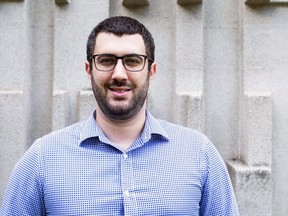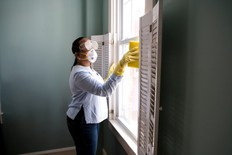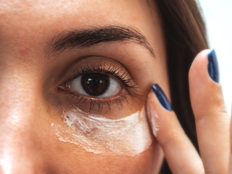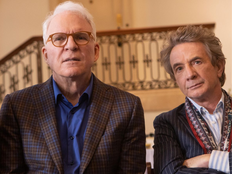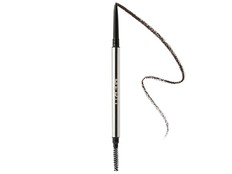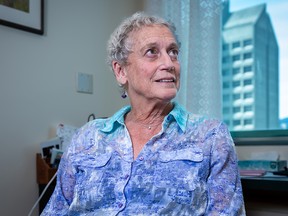When Gill Kazevman applied to medical school, and circulated his CV to physician mentors, ‘their most consistent feedback was, “Do not mention anything relating to Israel” ’
Article content
The more the antisemitism and anti-Israeli hate in medical school grew, the more Gill Kazevman censored his true self. “I was no longer Gill, the Israeli, Hebrew-speaking medical student,” Kazevman writes in a personal essay in the Canadian Medical Education Journal. “I was now Gill, who had completed his undergraduate degree in New Brunswick, and whose accent sounded somewhat French. I stopped wearing identifiable Jewish accessories in academic settings. I stopped speaking Hebrew in public,” he wrote. “I went into hiding.” Now a full-fledged family doctor and hospitalist, Kazevman immigrated, alone, to Canada from Israel in 2012 at age 22, “full of hope” of finding a welcoming, inclusive and supportive environment. But when he applied to medical school in 2017, and circulated his CV to physician mentors, “their most consistent feedback was, ‘Do not mention anything relating to Israel.’” Scrubbed from his CV was any mention of his volunteer work with an Israel ambulance service. Gone was the name of his high school “to minimize the chance of identifying the country in which I went to school.” With every erased line, “I felt as if I was tearing off a small piece of myself.” Now 34, Kazevman became a Canadian citizen in 2022. The National Post’s Sharon Kirkey spoke with the young doctor about his experience with antisemitism in Canadian medicine after starting his medical training at the University of Toronto in 2018. This interview has been edited for clarity and length.
Advertisement 2
Article content
What compelled you to be so open about the antisemitic sentiments you experienced from students and faculty?
It’s a question I’ve been asked by many people because they view this (essay) as dangerous for somebody early in his career, and why am I willing to come forward with this raw testimony of my experience?
I began thinking about this piece three years ago, in 2021, when I was still in medical school, and the climate in Israel was changing and there was more conflict. I was starting to experience more and more anti-Israel and antisemitic sentiment in the classroom. I started to understand how profound it was, but I was afraid of talking about it, because I was in a position of inferiority. I was a learner. I had a lot to lose. I had to work with different people and depend on them to give me a score at the end of a rotation or let me pass so I could complete my studies.
As I began completing my training, I’ve become more comfortable with the idea of taking that leap.
I also became a parent a year ago. My son is now 13 months old. My paternity leave started Oct. 7 (when Hamas terrorists attacked Israel). And it was at that pivotal moment that I realized that my child would be hated because I was born in Israel and my family is in Israel. I wanted to make sure that I gave him the best chance possible to get a fair shot at a career in medicine or other careers. I thought it was important for me to sound the alarm now.
Article content
Advertisement 3
Article content
You were born in Haifa, in northern Israel. When and why did you come to Canada?
When I was 16, I woke up to an alarm. It was summer break from school, and my windows were open, because it’s very hot in Israel. We had 20 seconds to get to the bomb shelter. And then a (Hezbollah) rocket pierced the house.
Luckily, none of us were hurt, but we were quite shaken. My uncle, who had been visiting from Canada, said, “I don’t think this is safe. I think you should come with me.” My parents had to stay to rebuild the house.
I spent about a month in Canada, in the GTA (Greater Toronto Area). I was definitely traumatized (by the rocket attack). Every loud noise or every blip of a siren triggered me, and it was quite awful to sit on video chats with my parents and hear an alarm on their side and see them running.
I came back to Canada at the age of 22, thinking that I had really liked it in Canada. It was calm; it was accepting. I moved to Saint John and attended the University of New Brunswick, where I did a degree in health sciences in a combined program with nuclear medicine technology.
In 2017, I decided to pursue a career in medicine. I had to apply to medical schools. It was then that I realized how much I had to censor my CV, based on feedback from people from within the academic circuit, who said, “If you put these things down, you’re not going to get an interview, you’re not going to get a spot in medical school.”
Advertisement 4
Article content
As a medical student, as a resident and, now, as a full-fledged physician, I’m privy to participate in those (admission) processes. In an environment that now feels saturated with anti-Israeli sentiment, there is a high chance that somebody would flag you, or just give you a lower rate.
You’re losing your chance at a fair shot if you mention Israel.
In your essay, you described how anti-Israel sentiment grew on campus. When did it begin to accelerate?
In 2018, the graduate student union at U of T said we are not supporting kosher food for learners, because we don’t support Israel. And then I was exposed to the whole “Israel Apartheid Week” and I realized how prevalent anti-Israeli and anti-Jewish hate is at the University of Toronto.
I had colleagues that asked me, “Who is paying for this?” meaning my schooling, as if I come from a rich family, which is a stereotype for Jews. Or “Who do you know?” As if it’s all about nepotism.
When COVID sent us all to the virtual realm in 2020, I began to see all kinds of caricatures against Jews. I saw faculty members, people in power, people that I’m supposed to rely on, post horrible things against Jews, against Israelis. In 2021, things really exploded. At meetings of student unions, I said I don’t feel safe on my campus. Other people said I was crying wolf, a common stereotype about Jews.
Advertisement 5
Article content
The faculty created a Senior Advisor on Antisemitism for the U of T’s Temerty Faculty of Medicine, Dr. Ayelet Kuper (in a damming report released in 2022, Kuper wrote that “there are those who do not only cross over the line to anti-Jewish hatred but who do so proudly.”) What I saw was nothing (compared to Kuper’s experiences), but her report validated how I was feeling. But it really worried me more about my future.
When I graduated medical school and got accepted to a residency program at the U of T, I had to think long and hard about which hospitals I could work at, based on the response of those hospitals to antisemitic acts and how active people working in that hospital have been on social media. There were a few hospitals that were my safe havens, and a few I was afraid to work in.
I ended up at a really safe place (Kazevman completed his residency at Toronto’s Michael Garron Hospital).
If we don’t call out (antisemitism) now, if we don’t call out the problem in medicine, it will get worse. We really need to understand how deep the problem is and what mechanisms exist within our universities to engage with them. I think we need to come back to the Jewish communities at large: “We’re hearing you, and this is how we are going to try to regain your trust.”
National Post
Recommended from Editorial
Our website is the place for the latest breaking news, exclusive scoops, longreads and provocative commentary. Please bookmark nationalpost.com and sign up for our daily newsletter, Posted, here.
Article content

